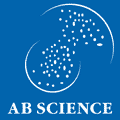If you are interested in participating in the ongoing study, please contact us at clinical@ab-science.com
Mastocytosis is a rare disease characterized by proliferation and accumulation of mast cells in various tissues, causing a wide variety of clinical symptoms. Indolent systemic mastocytosis, including the subvariant of smouldering systemic mastocytosis, is a lifelong condition associated with reduced quality-of-life.
Mastocytosis can be categorized into cutaneous mastocytosis and systemic mastocytosis. Systemic mastocytosis (SM) can be further categorized into indolent SM, smouldering SM and aggressive SM. Patients with indolent SM or smouldering SM have a (nearly) normal life expectancy, while patients with aggressive SM have a median overall survival of approximately 4 years.
There is a high unmet need in indolent systemic mastocytosis (ISM) and smouldering systemic mastocytosis (SSM) for new therapeutic options with demonstrated activity on severe symptoms and adequate safety profile for a life-long treatment. Masitinib is the leading program in ISM and a viable approach to this goal.
Masitinib is developed in ISM and SSM, which are the most prevalent forms of mastocytosis, accounting for approximately 60% of patients.
Masitinib’s anti-mast cell properties appear particularly well-adapted to the treatment of indolent systemic mastocytosis. A reduction of mast cell activity is generated via its inhibitory action on wild-type c-Kit, Lyn and Fyn tyrosine kinases.
In recognition of the critical need for new treatments, masitinib received orphan drug designation for mastocytosis from both the European Medicine Agency (EMA) and the U.S. Food and Drug Administration (FDA).
AB Science reported positive 2 Phase 2A proof of concept results with masitinib in mastocytosis. These two phase 2a studies enrolled a total of 46 patients in two sub-populations of patients suffering from indolent mastocytosis with handicap: one study in patients who did not carry the D816V mutation on the c-Kit gene and another in patients who did carry this mutation.
In the study with patients carrying the D816V mutation, the percentage change from baseline at week 12 in number of flushes per day, depression (Hamilton score) and pruritus was 55%, 49% and 45% respectively.
In the study with patients not carrying the D816V mutation, the percentage change from baseline at week 12 in number of flushes per day, depression (Hamilton score) and pruritus was 64%, 43% and 36% respectively. The results of this study have been published in the American Journal of Hematology.
In this phase 3 study, results showed that masitinib was superior to the comparator, as measured by the cumulative 75% response rate until week 24 on the handicaps of severe pruritus or severe flushes or severe depression or severe fatigue (4H75% response).
The 4H75% response was 18.7% for the masitinib treatment-arm versus 7.4% for the placebo treatment-arm (primary analysis). Masitinib also demonstrated significant activity on objective markers of mast cell activation and burden (i.e. level of tryptase, body surface area with urticaria pigmentosa, and presence of Darier’s sign).
The results of this first phase 3 study have been published in The Lancet.
Following this first phase 3 study, AB Science initiated a confirmatory phase 3 study, with design optimized based on findings from the first phase 3 study. The design optimization includes dose titration and a run-in period to ensure that patients are taking optimal symptomatic treatment at screening.
